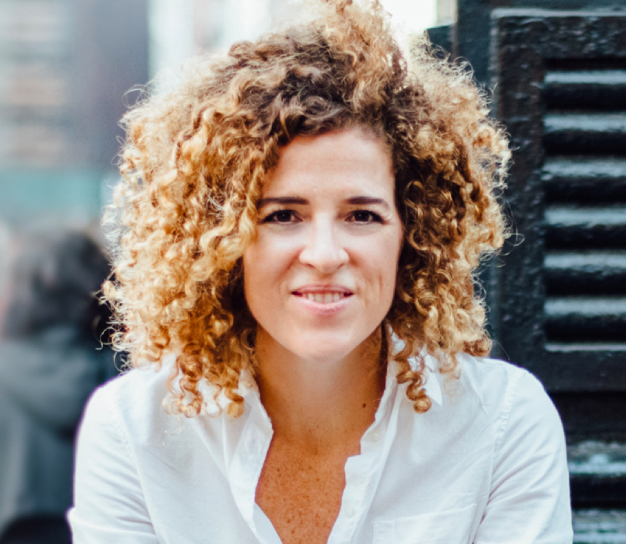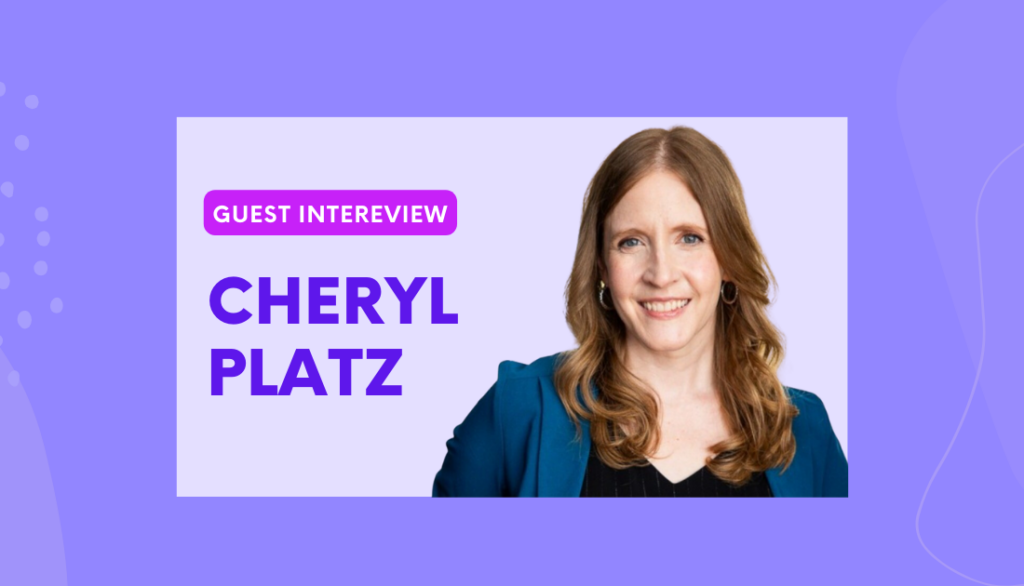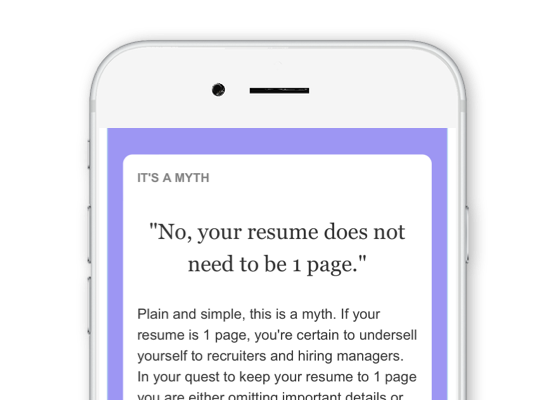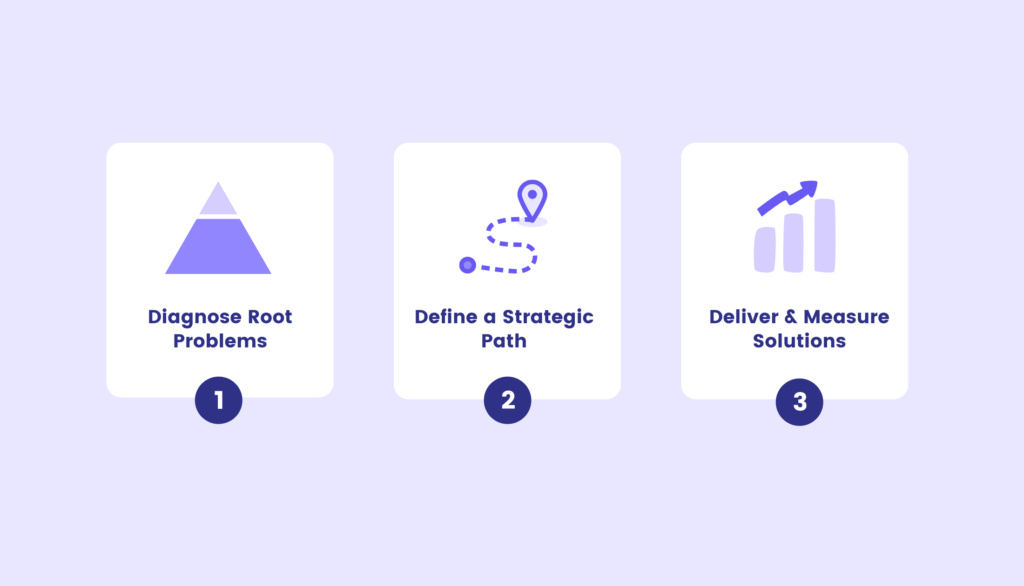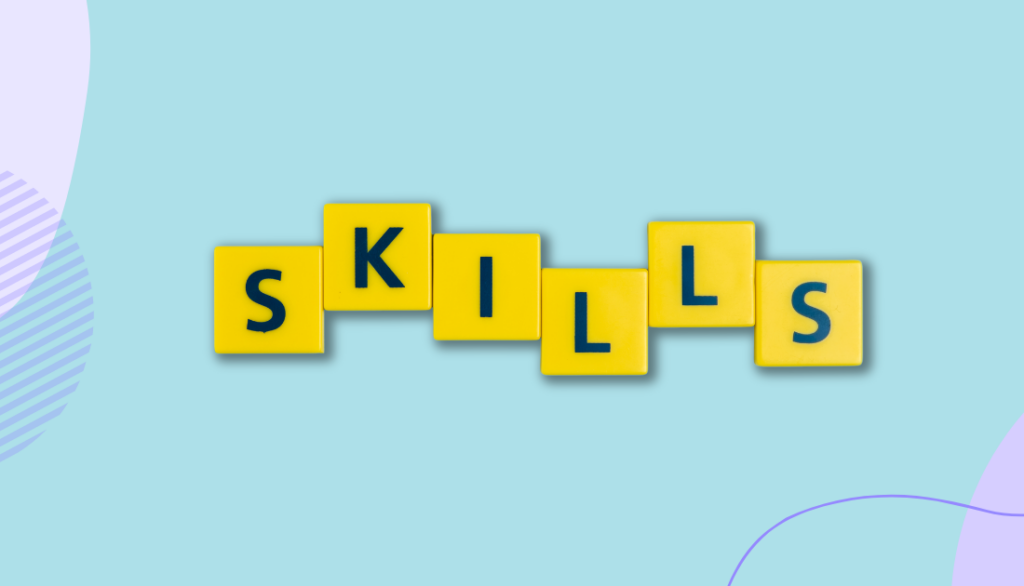Episode 66
What is Career Compound Interest and How You Can Leverage It In Your Career
16 min listen
Episode 62
16 min listen

Listen to the Episode
Episode Summary
What is career compound interest? In this episode, we explore the concept of compound interest in your career, drawing parallels between investing money and investing in your career.
We learn how small, strategic moves today can lead to significant long-term professional success. The episode delves into three key strategies for creating a compound interest effect in your career. First, the importance of investing time early in updating your resume and optimizing your LinkedIn profile. The episode highlights the emotional advantage of being prepared for unexpected job searches. The second strategy explores the benefits of negotiating wisely, emphasizing the long-term impact on salary expectations and financial opportunities. Lastly, the episode encourages fostering authentic relationships in your professional network before they are desperately needed, illustrating how nurturing these connections over time can lead to unexpected career opportunities. The episode wraps up by offering a free resource to help those feeling uncertain about their next career move. Tune in to gain actionable insights and take control of your professional future.
Create your dream career, and life
- Book a free Career Strategy Call to learn how we can help you
- Get our free Career Roadmap to help you navigate your career
- Check out Career Strategy Lab, our 3-month career coaching program
Watch
Discussion Questions About The Episode
- How have you invested in your professional development early on in your career, and how has it impacted your career growth and opportunities?
- Can you recall a specific instance where negotiating a job offer or salary positively influenced your financial situation in the long term? How did this experience change your perspective on negotiation?
- Reflect on the authenticity of your professional relationships. How have genuine connections influenced your career journey, and are there any opportunities you've encountered due to these authentic relationships?
- What strategies could you implement to invest in your professional future, whether it's updating your resume and portfolio, negotiating wisely, or building authentic relationships within your industry?
- In what ways can you apply the concept of compound interest to your career? How do you envision these strategies shaping your professional trajectory in the long run?
Episode Transcript
Sarah Doody [00:00:00]: Hey there. I’m Sarah Doody, host of the Career Strategy Podcast. Many professionals are seeking more impact, flexibility, growth, and let’s face it, getting paid what they’re worth. But how do you unlock this in your career? It starts with strategy. I’m taking you behind the scenes of what’s working for my career coaching clients. You’ll hear strategies and actionable, yet sometimes against the grain, advice for how you can be the CEO of your career and stop dreading Mondays. Ready to level up your career? Let’s get after it. Hello.
Sarah Doody [00:00:38]: Hello. Welcome back to another episode of career strategy podcast. Now, today, we are diving into the topic of career compound interest and why it’s so important to invest in your professional future. Similar to investing with money, compound interest really relates to your career. And the small investments that you make now can really help the long term journey of your career, and they can yield significant results over time, very similar to investing money. Right? If you start investing in your twenties or thirties for your retirement, that money has many decades to grow versus not starting until your forties or fifties, your money just doesn’t have as much time to grow. So just like smart financial decisions can grow your wealth, strategic career moves today can lead to exponential success in the long run. So I want to explore 3 kind of areas to think about when it comes to how you can create compound interest effect in your career.
Sarah Doody [00:02:02]: The first principle I wanna talk about is the idea of investing early. Right? So we already said how the sooner you start investing, the longer your money has to grow. And the same applies to your career. But I wanna kind of focus on the investment of time because a lot of people don’t want to sit down and optimize their resume, or optimize their LinkedIn, or update their portfolio if you have one, especially if you’re happily employed and you’re not really feeling the pressure of needing to do this because you are in or have an imminent job search. However, investing early and investing time when you don’t need these things ready to go is the best time to do it. For example, investing time to update your resume now is really beneficial because you are going to be in a much better headspace than you will be if all of a sudden you have your position eliminated, and then you’re forced into a job search and you have to rush to update your resume. So invest early, especially thinking about the emotional state that you want to be in when you are updating your resume. Same thing applies to your LinkedIn profile.
Sarah Doody [00:03:35]: The time to update your LinkedIn profile is not the day you start your job search, It’s well before. You wanna have an updated and optimized LinkedIn profile because it’s very much like search engine optimizing a web page. A well optimized web page will bring you the right types of people hopefully for free. Because when they’re searching in Google or wherever they’re searching, your web page is going to come up higher in the search results than other web pages. The same idea applies to your LinkedIn profile. When you optimize it, you are going to be more likely to show up in the search results when recruiters, hiring managers, etcetera, are searching with people in your skill set. And if you do that now, well before you need to be in a job search, that gives your profile more time to start showing up in those search results and it gives you more time to be tweaking it and adding keywords and removing keywords and things like that to try and see the engagement on your LinkedIn profile and the profile views increase as well. Whereas on the flip side, if you, God forbid, lost your job tomorrow, and all of a sudden you’re updating your LinkedIn profile, that means it’s gonna be a little bit of time before your LinkedIn profile is optimized and starts to hopefully bring the right types of people to your profile.
Sarah Doody [00:05:24]: So even though you might be in a job that you love right now, it is so important to invest time now to do these things, to update your resume, optimize your LinkedIn profile, add those projects to your portfolio if you have one. Because you’ll be in a much better headspace to do it now and that means they are ready to go should you find yourself in a situation where you need to go into a job search or an amazing opportunity comes your way and someone invites you to apply for a job, you’d be ready. Versus if you don’t do this, you’re gonna be rushing and you may submit something that has mistakes or doesn’t sell your skills and experience very well or worse, you only have, like, 2 days to get your application in and you can’t do it, and you miss out on this awesome opportunity that maybe, you know, a friend or former colleague tells you about. So number 1, invest early. Number 2 is the idea of negotiating wisely and here’s an exact example of what I mean. So a lot of people don’t negotiate their salaries and I would say most companies leave a little room for negotiation in the offer because they’re assuming that you might negotiate. So they want to potentially have room to do that. Also, they’re a business.
Sarah Doody [00:07:08]: They wanna see if you’re going to say yes to maybe something on the lower end of their salary range or if you’re gonna negotiate. So here’s why negotiating is really important for you as a candidate and this goes back to compound interest. So if you are interviewing for a job next week and you get an offer, you definitely want to negotiate that because if they say yes to your request, that means, you know, your salary is increasing from probably what it is today. But now we have to think 2 years from now, 4 years from now, when you start applying to more jobs. So if you had not negotiated that job offer that you just got that means that 2, 3, 4 years from now, your salary expectations and salary history would be lower than what you have if you negotiate. Now I am in no way telling you that you should be, you know, answering every salary disclosure question that you might be asked in an interview and there’s all kinds of reasons against that, to be honest. However, when you negotiate, you are setting yourself up to have your salary jump more quickly than if you didn’t. And here’s the thing too.
Sarah Doody [00:08:40]: If you’re negotiating your salary, that means you have potentially more money to put into a savings account, a retirement account. And that’s when we see that tangible impact of compound interest come into effect. Right? Because if you didn’t negotiate, then you can’t reap the benefits of compound interest. Or the same could be said for paying off debt. Right? Maybe you have student loan debt or you wanna try and pay off your house more quickly. Great. If you’re able to negotiate your salary, you’re able to achieve whatever those financial goals are more quickly. So negotiate wisely, and I would argue always negotiate, because the worst that happens is they say no.
Sarah Doody [00:09:32]: Best case, you get more than you were offered, which can pay off in the long term whether you’re, like I said, saving for retirement, paying off debt, etcetera. Alright. Now our third strategy related to compound interest in your career is the idea of building authentic relationships before you need them. So notice I said build authentic relationships and not a massive giant network. There’s a big difference and by authentic relationships, I mean, you want to have relationships where people actually know who you are, would actually answer your LinkedIn message, or pick up the phone if you called. A lot of times, in this focus on size of network, what happens is people are just amassing connections with strangers. When at the end of the day, if I pulled up your LinkedIn connections for example and randomly pulled 5 people’s profiles and asked you like to tell me 3 things about each person, there’s a high chance you wouldn’t be able to tell me anything because you don’t actually know those people. They’re just people that you clicked connect with or accept with on LinkedIn.
Sarah Doody [00:10:58]: And my point is, what is the good of having a large network of people that you don’t know anything about really and they don’t know anything about you versus a smaller group of people that you actually know, who would recognize your name or your face, or if asked by someone else like, oh, what does so and so do? They would be able to actually explain to someone what you do. Right? So in the spirit of compound interest, we wanna be cultivating a strong professional network of authentic relationships before we need them. So similar to the idea of investing early, we want to be investing in relationships before we need them. Because if you wait until you need a job it’s going to seem a little bit inauthentic maybe. If you’re just all of a sudden mass messaging a bunch of people and asking them for introductions, things like that. Whereas, if you have a smaller group of people you have really great relationships with and authenticity, and you ask for their help, they’re more likely to reply or to be your Sarah set of ears and eyes when it comes to finding job opportunities and things like that. And the other thing I would add to this idea of cultivating really authentic relationships is that part of it is just having these relationships in place so that you have more opportunities for people to potentially send interesting opportunities your way. Whether that is someone reads an article and remembers you’re interested in that topic and they send it to you, they see a conference asking for speakers and they think, oh, wow.
Sarah Doody [00:13:08]: My friend would be a great candidate for that, and they send it to you. So having an authentic professional network or professional relationships isn’t just about helping you get hired. It’s about having more opportunities for people to bring you interesting career opportunities that maybe you would not have heard about on your own. And the sooner you can start creating those types of relationships, then guess what? The longer time there is for those relationships to deepen and to grow and for you to nurture them. So that is our episode for today, compound interest, how it relates to your career. To recap, we had number 1, investing early. Right? Don’t wait until you need to start applying to jobs to get your resume, your LinkedIn, your portfolio, etcetera, ready to go. Because we want to do that when we are in the right headspace, when we have enough time to do those things strategically.
Sarah Doody [00:14:20]: Number 2, we wanna be negotiating wisely. Because if we don’t negotiate, we are literally missing out on opportunities to reap the benefits of compound interest in our financial lives, whether it’s saving, paying off debt, etcetera. And the third thing is networking for success and building authentic relationships before we need them, and doing so because the sooner we form relationships, the longer time period those relationships have to grow throughout the course of our careers. Alright, I hope you took away something actionable from today’s episode. And before I go, I just wanna offer you one resource that might be helpful. If you are feeling lost or not sure what the next step is in your career or how to advance, maybe you’ve been working for 10, 15, 20 years, and you’re trying to figure out what is the next chapter of my career, then I really think you could benefit from my career roadmap. It is a free ebook that I created where it will lay out the 5 things you need to have in place to advance your career. So hit pause right now and visit career strategy lab.com/ roadmap.
Sarah Doody [00:15:50]: And I will send you that roadmap if you give me your email address. Alright. Again, that is career strategy lab dotcom/roadmap. And that’s our episode. Have a great rest of your day. Thanks for listening to the career strategy podcast. Make sure to follow me, Sarah Doody, on Twitter, Instagram, YouTube, or LinkedIn. If anything in today’s episode resonated with you, I’d love to hear about it.
Sarah Doody [00:16:19]: Tag me on social media or send me a DM. And lastly, if you found this episode helpful, I’d really appreciate it if you could share it with a friend or give us a quick rating on Spotify or review on Apple Podcasts. Catch you later.
